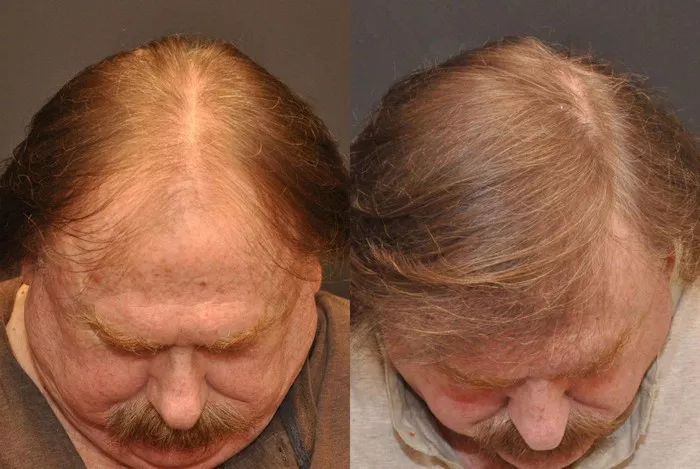Hair transplantation has become a popular and effective solution for those seeking to combat hair loss and restore a fuller head of hair. One common question that arises among individuals considering or undergoing hair transplant procedures is whether the transplanted hair will eventually get thicker. In this comprehensive exploration, we delve into the intricacies of hair transplantation and address the query: Does transplanted hair get thicker?
Understanding the Basics of Hair Transplantation:
Before we delve into the potential thickening of transplanted hair, it’s crucial to understand the basics of the hair transplantation process. Hair transplantation involves the extraction of hair follicles from donor areas, typically located at the back or sides of the scalp, and their transplantation into areas experiencing hair thinning or loss. The success of the procedure largely depends on factors such as the skill of the surgeon, the quality of the donor hair, and the patient’s overall health.
The Growth Cycle of Hair:
To comprehend the potential thickening of transplanted hair, it’s essential to grasp the natural growth cycle of hair. Hair undergoes three main phases: the anagen phase (growth), the catagen phase (transition), and the telogen phase (resting). Not all hair is in the anagen phase simultaneously, and the thickness of hair can vary during different stages of the growth cycle.
Initial Changes after Hair Transplantation:
Following a hair transplant, patients typically experience a phase of shedding, where the transplanted hairs fall out. This shedding is a normal part of the process, and it paves the way for new hair growth. In the initial months post-transplant, the emerging hairs may appear finer and lighter than the surrounding native hair. This can lead to a perception that the transplanted hair is not as thick as desired.
Patience is Key:
Achieving thicker transplanted hair requires patience. In the months following the procedure, the transplanted hair gradually progresses through the growth cycle. Initially, the hairs may be in the anagen phase but appear finer due to factors such as stress and the trauma of transplantation. However, as the growth cycle continues, many patients observe a significant improvement in the thickness and texture of the transplanted hair.
Natural Thickening Over Time:
The natural thickening of transplanted hair occurs as the hair follicles establish themselves in their new environment. Factors such as blood supply, nutrient availability, and the adaptation of the transplanted follicles contribute to the improvement in hair thickness. Additionally, the natural progression of the hair growth cycle ensures that the transplanted hairs undergo subsequent cycles, with each new cycle potentially resulting in thicker and more robust hair.
Factors Influencing Transplanted Hair Thickness:
Several factors can influence the thickness of transplanted hair, and understanding these factors provides insight into the potential outcomes of the procedure.
1. Genetics:
The inherent characteristics of the donor hair, largely determined by genetics, play a significant role in the thickness of transplanted hair. Individuals with naturally thick and robust donor hair are more likely to experience thicker transplanted hair.
2. Surgical Technique:
The skill and precision of the surgeon performing the hair transplant procedure directly impact the outcome. A meticulous and well-executed transplantation process ensures the survival and optimal growth of transplanted hair follicles, contributing to their thickness.
3. Post-Operative Care:
Proper post-operative care is crucial for the success of a hair transplant. Following the surgeon’s guidelines, including the use of prescribed medications and adhering to a recommended care routine, promotes the health and thickness of transplanted hair.
4. Individual Response:
Each individual responds uniquely to a hair transplant, and factors such as overall health, lifestyle, and adherence to post-operative care can influence the rate of hair thickening. Patience and a positive mindset are key as the process unfolds over several months.
See Also: How Many Hairs for Hair Transplant Surgery: All You Need To Know
Conclusion: The Journey to Thicker Transplanted Hair:
In conclusion, the question of whether transplanted hair gets thicker has a positive answer for many individuals. While the initial post-transplant phase may involve finer hair and shedding, the natural growth cycle, coupled with factors such as genetics, surgical technique, and post-operative care, contributes to the gradual thickening of transplanted hair. Patience is paramount in this journey, as the final results often become more apparent in the months following the procedure.
For those considering a hair transplant or currently in the recovery phase, it’s essential to maintain realistic expectations and consult with a qualified and experienced surgeon. With advancements in technology and surgical techniques, individuals can achieve not only a fuller head of hair but also the satisfaction of witnessing their transplanted hair become thicker and more vibrant over time.


